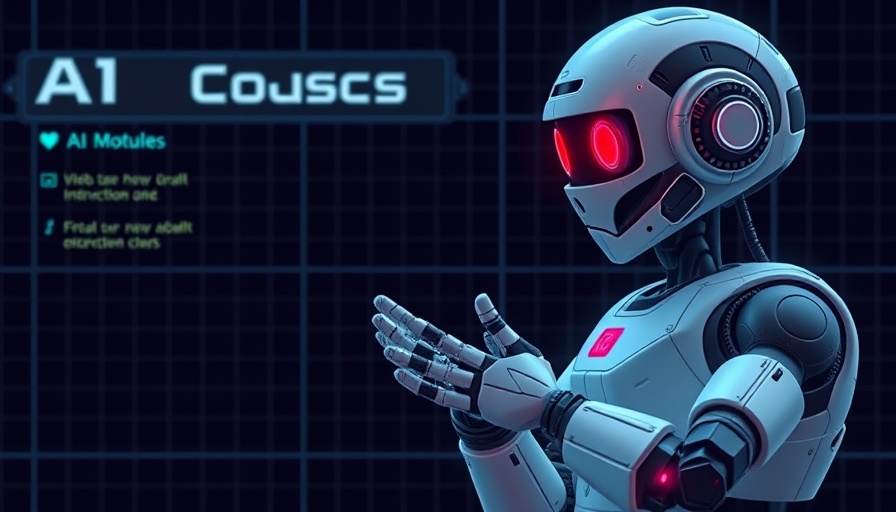
Breaking New Ground in AI Capabilities
If you thought the timeline for advancements in artificial intelligence was moving slowly, the recent performance of OpenAI's models would suggest otherwise. The AI community was collectively stunned when it was announced that OpenAI's latest experimental reasoning model won gold at the International Math Olympiad (IMO), a prestigious competition known for its rigorous mathematical challenges. This achievement marks a significant leap in AI's ability to perform complex reasoning and creative thinking tasks, indicating we might be on the edge of monumental progress in AI capabilities.
In 'AI Just Achieved Something No One Thought it Would Until Years From Now', the discussion dives into OpenAI's groundbreaking achievement at the International Math Olympiad, exploring key insights that sparked deeper analysis on our end.
Insights from the International Math Olympiad
The IMO is not just any ordinary math contest; it presents problems that require exhaustive proof strategies rather than straightforward numerical solutions. The AI model was put through the same grueling constraints as human competitors, with a 4.5-hour exam period and no access to any external resources. Remarkably, it successfully solved five out of six problems, demonstrating a competence that many thought would take years to achieve. Notably, renowned mathematicians were impressed, validating the model's performance without external tools—a clear indicator of its capabilities beyond mere calculations.
Why This Achievements Matters
This victory at the IMO serves as a benchmark of AI’s evolving capabilities. According to Alexander Way, a reasoning engineer at OpenAI, the shift from solving basic math problems to tackling complex theoretical ones in a structured format like the IMO represents a profound enhancement in AI's reasoning capabilities. Historically, AI models typically relied on narrow, task-specific training, but this model showcases a more generalized approach that can tackle various complex problems efficiently.
Accelerating AI Progress and Its Implications
Many experts observe that the pace of AI advancement is accelerating faster than previously projected. Predictions made by AI safety advocates anticipated achieving IMO-level competency around 2025, mainly using more controlled, narrow methodologies. However, with OpenAI’s model reaching this milestone ahead of schedule, there’s a growing concern over how quickly AI could reach artificial general intelligence (AGI). Terrence Tao, a highly respected mathematician, was notably surprised by this development. It implies that the landscape of AI could soon shift significantly, paving the way for methods of AI that enhance productivity and creativity across various industries.
Future Predictions and Opportunities for Businesses
As AI continues to evolve, business owners might find themselves at a crossroads where leveraging advanced AI tools could unlock new efficiencies and innovations in their operations. For instance, as AI technologies become more robust, they might begin contributing significantly to research and discovery processes in various fields, from scientific methodologies to marketing strategies. As Sam Altman, CEO of OpenAI, hinted, companies could very likely see real advancements in AI applicability in their operations, potentially enhancing everything from decision-making processes to customer interactions.
Actionable Insights for Business Owners
For business owners looking to stay ahead, it’s essential to start integrating AI now rather than waiting for the perfect model to become mainstream. Early adoption of AI can provide a competitive edge, offering insights and efficiencies that traditional methods may not deliver. Whether through data analysis, customer service automation, or operational improvements, businesses that leverage AI will not only keep pace with their competitors but may also lead their industries into the future.
Why You Should Prioritize AI Implementation
The message is clear: AI is rapidly evolving, and the time to act is now. Understanding emerging AI technologies and experimenting with them in your operations can unlock unparalleled benefits. By adopting AI sooner rather than later, you set your business on a path towards innovation, efficiency, and greater market competitiveness.
 Add Row
Add Row  Add
Add 




Write A Comment